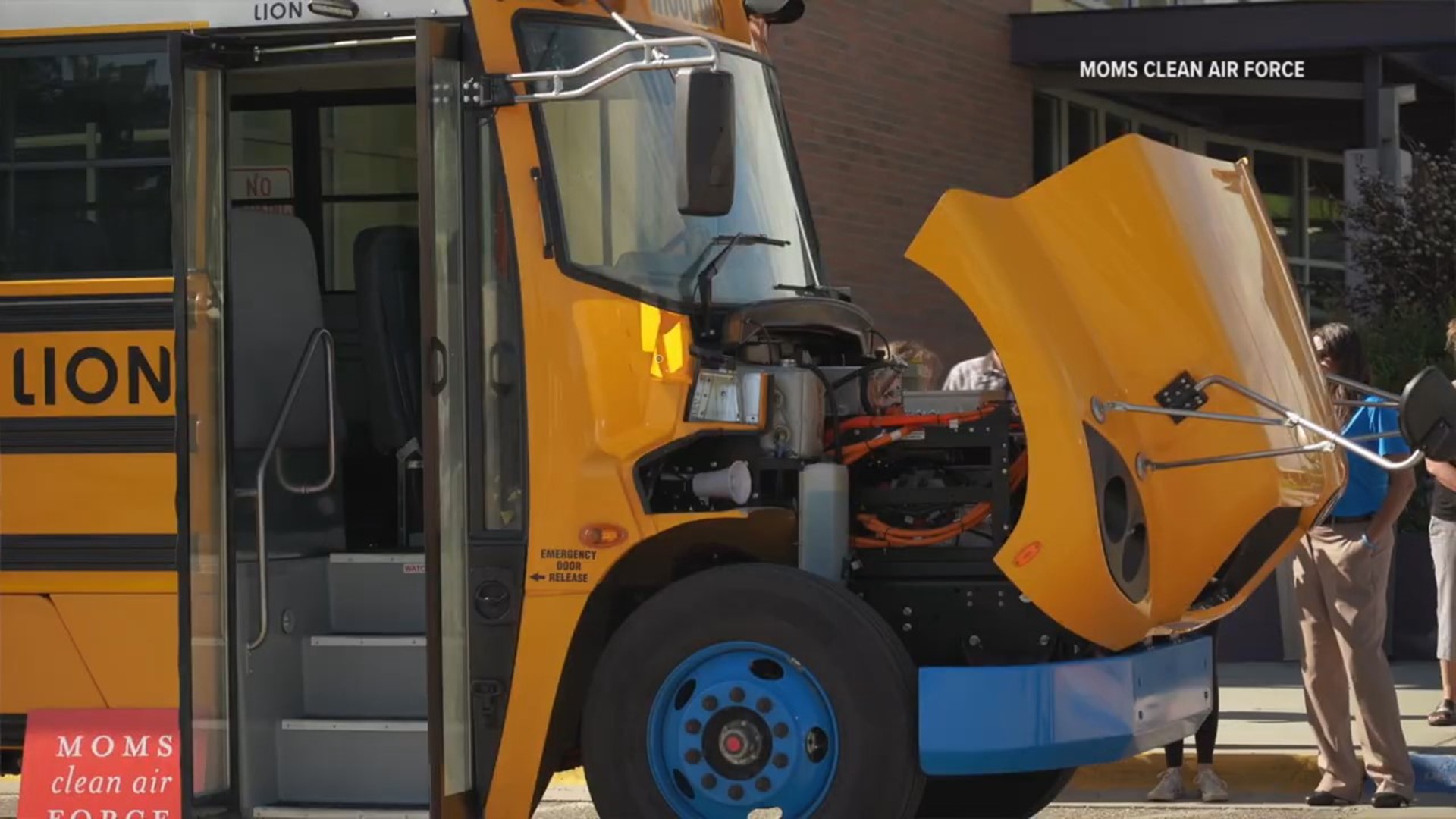YORK, Pa. — 1.4 million Pennsylvania students will board buses this school year, most of them climbing onto diesel buses. Officials at PennEnvironment said the diesel fleets are harming the earth and hurting students.
Just one bus can produce 23 tons of waste, releasing harmful greenhouse gases into the atmosphere.
Non-profit Moms Clean Air Force says diesel exhaust contains 40 known cancer-causing elements and is often more concentrated inside the bus than outside. It's causing respiratory issues in students and can lead to headaches, nausea and poor concentration in school.
Kevin King from electric school bus company First Student Inc., said his son was one of them.
"My older son was a severe asthmatic, and he would get off that school bus every day and he’d barely make it up the steps and we had a nebulizer treatment ready for him," King said. "I am looking back, 100% convinced that riding on that diesel bus exacerbated that issue for him."
The Environmental Protection Agency’s Clean School Bus program is offering school districts and bus contractors across the country the chance to turn their fleets electric.
The federal grant and rebate program will award $5 billion over the next five years, enough to replace more than 13,500 buses from model year 2010 and older.
Pennsylvania schools received 22 electric buses in the last round of funding. Some Harrisburg students will soon be riding them, but there are some barriers to using the technology.
"We also have to factor in the infrastructure cost for charging," said Gerry Wosewick, executive director of the Pennsylvania School Bus Association. "An A/C charging unit, which is one of the slower charging units, can go for about $5,000 to $10,000. A D/C charging unit, which can charge a bus much faster and can charge multiple at a time, can go between $25,000 and $50,000."
Priority school districts can receive up to $395,000 per bus, helping cover the cost of the necessary charging stations and batteries. Each new electric bus can cost three to four times more than a diesel bus.
"Without having that grant funding, most districts, most contractors, they’re not going to be prepared," Wosewick said. "They’re not going to be able to carry the weight of that burden, financial burden."
King said electric buses pay for themselves over time, requiring 60% less maintenance and offering 80% energy savings.
"I’m very excited about everything it will bring in terms of benefits to the community, the benefits to the student, and there are economic advantages to the operators, as well," he said.
Wosewick points out electric buses mean more training for mechanics and for drivers.
The EPA is awarding $400 million as part of the 2023 Clean School Bus program.
Applications close next week.

